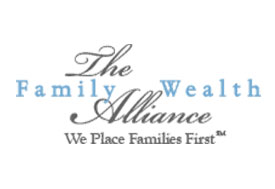
Assets managed by Family Offices in the USA increased by 16% last year compared to 2012 and the outlook for them is rosy, according to Robert Casey, Senior Managing Director of Research for the Family Wealth Alliance. Mr Casey gave his views in a recent interview with Institutional Investor.
Mr Casey said that the 5,000 or so family offices saw the assets under their control rise by over $500bn in 2013, to around $2 trillion. To help handle these assets, an increasing number of firms – possibly now as many as one third – are making use of the services of an external Chief Information Officer (CIO).
CIOs are performing three functions. The first is as investment consultant. An external CIO can be expected to see the big picture, and thus is well placed to help the client develop an investment policy, by developing asset allocations (not only for individual portfolios but overall, too); evaluating the selection of managers; and evaluating and reporting on performance.
Increasingly, the CIO may function as an asset manager. This may involve managing with some kind of pooled vehicles, possibly for one particular family, and may go from traditional investments to more aggressive ones. This may involve other non-family investors in an outside investment pool.
The CIO may also play the role of financial planner. This involves liquidity management and liability management as with a pension fund or the performance of an insurance company. But this is geared specifically to the handling of multi-generational family wealth. Tax management is crucial here. The manager should be looking to raise the basis of the portfolio year-on-year.
Multi-family offices are well placed to carry out this role, as they are already used to dealing with a client’s needs across the board. What’s more, they are able to take advantage of a certain loss in trust in the banks. What clients want is objective advice and stability in the management of the relationship. Whereas in the past the banks offered both of these, the perception now is that this has largely been lost, and a lot of clients have turned away from the banks.
The family office has become more niche also because the concept of the “single-family office” is now enshrined in US law. To qualify, a firm has to have no non-family clients; no non-family ownership; and cannot make itself available to the general public. If firms do not fit these criteria, then they must register as an investment advisor, which is, of course, rather less exclusive.


